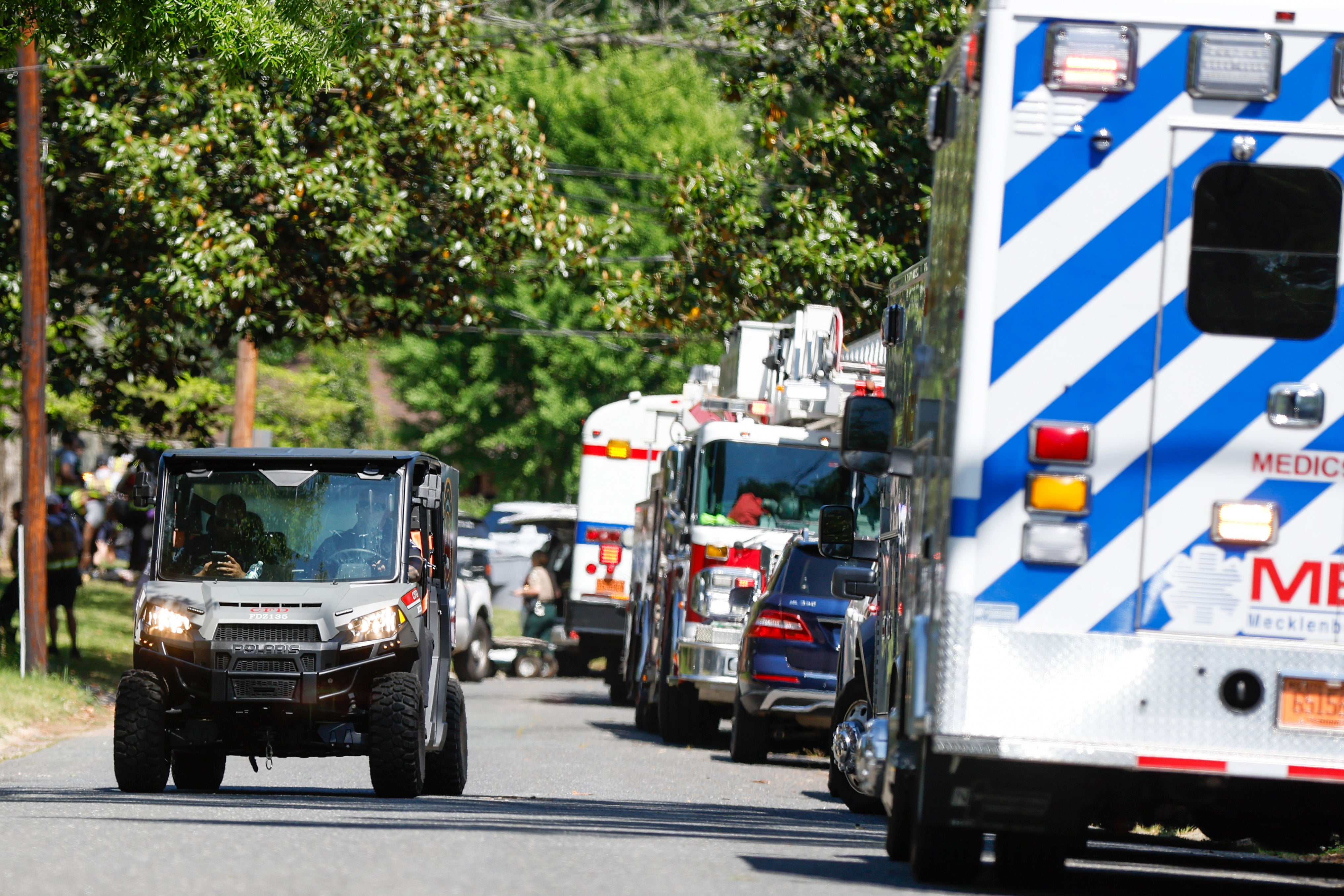Deadly force justified in fatal shooting of North Carolina man who killed 4 officers, official says
A district attorney in North Carolina has concluded that law enforcement officers were justified in their use of deadly force against a gunman who killed four officers in April

Your support helps us to tell the story
From reproductive rights to climate change to Big Tech, The Independent is on the ground when the story is developing. Whether it's investigating the financials of Elon Musk's pro-Trump PAC or producing our latest documentary, 'The A Word', which shines a light on the American women fighting for reproductive rights, we know how important it is to parse out the facts from the messaging.
At such a critical moment in US history, we need reporters on the ground. Your donation allows us to keep sending journalists to speak to both sides of the story.
The Independent is trusted by Americans across the entire political spectrum. And unlike many other quality news outlets, we choose not to lock Americans out of our reporting and analysis with paywalls. We believe quality journalism should be available to everyone, paid for by those who can afford it.
Your support makes all the difference.Law enforcement was justified in using deadly force against a gunman in North Carolina who fatally shot four officers and wounded four others in April, a prosecutor concludes in a report released Thursday.
There is “no question” that the officers who killed Terry Clark Hughes Jr. did so to defend themselves and others, Mecklenburg County District Attorney Spencer Merriweather says in the report. Before he was killed, Hughes, 39, opened fire on officers serving arrest warrants at his home in the city of Charlotte, the deadliest attack on law enforcement in the U.S. since 2016.
“If law enforcement officers had not responded to an imminently deadly threat with lethal force, as difficult as it is to imagine, the outcome could have been even more catastrophic,” Merriweather says.
The district attorney's office interviewed law enforcement officers who were at the shooting, including 12 Charlotte-Mecklenburg police officers who fired their guns, to determine if the use of deadly force against Hughes was warranted. Authorities also compiled body camera footage and physical evidence, such as how many rounds were discharged during the shooting: 29 by Hughes and 340 by officers.
Merriweather's report described a scene of chaos and confusion during the lengthy standoff that left the four officers dead: Sam Poloche and William Elliott of the North Carolina Department of Adult Correction; Charlotte-Mecklenburg Officer Joshua Eyer and Deputy U.S. Marshal Thomas Weeks.
As state fugitive task force officers arrived at Hughes' residence to serve arrest warrants on the afternoon of April 29, he retreated inside his home and began firing on them with an assault rifle from a window upstairs, the report says.
Weeks was hit while taking cover with Poloche behind a tree in the backyard, according to the investigation. Elliott and another officer were shot near the home's fence, authorities said. Eyer and Poloche were shot behind the tree while Eyer was attempting to help Weeks, the report says.
Three other Charlotte-Mecklenburg police officers were shot at different locations outside the house, according to the report.
Hughes jumped down from the home's upstairs window into the front yard, where officers told him to drop his weapon, according to the investigation. The officers opened fire, hitting Hughes 12 times and killing him, according to a state autopsy report. Hughes had two more 30-round rifle magazines in his pocket and an unused pistol on his hip, the district attorney's office said.
During the course of the shooting, the investigation found that 23 officers had shot at Hughes. None of the four officers who were killed had fired their weapons before they were shot, according to the report.
About 50 minutes after Hughes' death, his girlfriend called 911 to report that she and her 17-year-old daughter were hiding in a closet in the home. After interviewing them, investigators determined there was no evidence that they had been involved in the shooting of the officers.